Written for a tribute to Danièle Huillet in Undercurrent, on the FIPRESCI web site, in March 2006. — J.R.
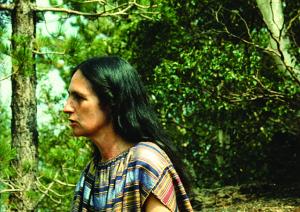
One thing worth mentioning about Danièle: I’ve never known anyone who knew her and Jean-Marie well enough to know absolutely for sure whether or not they were literally husband and wife. This might strike some as a mere technicality, but I think it signifies something more. Whether they went through an actual wedding ceremony or wound up living together; whether they considered having children; whether it was inaccurate or precise, impolite or perfectly okay to refer to them as “the Straubs”: these are all basically questions about how they defined themselves in relation to society. And the fact that most of us don’t know the answers points towards a larger uncertainty about whether they were true bohemians or eccentric traditionalists (not necessarily the same thing), or some combination of the two. (Danièle only began to be credited as coauteur belatedly, after their first few films. But was this because she gradually became more active as a filmmaker or because the two of them began to place a higher value on her participation? Again, I have no idea.)
I think the fact that their work provokes silence more often than discussion — a tribute in some ways to its continuing radicality and difference — may be partly to blame for this. Read more
Written for and published in 10 To Watch: Ten Filmmakers for the Future, edited by Piers Handling and designed to accompany a program of films shown at the tenth anniversary of the Toronto Festival of Festivals in the fall of 1985. This was most likely the first time I attempted to write about Ruiz’s work at any length. –- J.R.
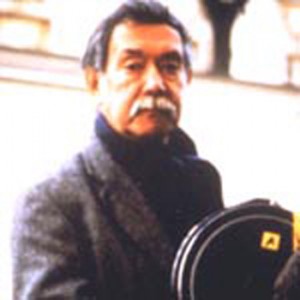
The sheer otherness of Raúl Ruiz in a North American context has a lot to do with the peculiarities of funding in European state-operated television that makes different kinds of work possible. The eccentric filmmaker in the U.S. or Canada who wants to make marginal films usually has to adopt the badge or shield of a school or genre — art film, avant-garde film, punk film, feminist film, documentary or academic theory film — in order to get funding at one end, distribution and promotion at another. Ruiz, on the other hand, needs only to accept the institutional framework of state television — which offers, as he puts it, holes to be filled — and he automatically acquires a commission and an audience without having to settle on any binding affiliation or label beyond the open-ended framework of “culture” or “education”. Read more
From the Spring 1984 issue of Sight and Sound. This was the first time I attended the film festival in Rotterdam and the first time I encountered the work of Raul Ruiz. It’s sadly emblematic that the Jancsó TV miniseries, even though it wound up being shown on the BBC, is so forgotten and out of reach today that I can’t even find a satisfactory still for it on the Internet. — J.R.
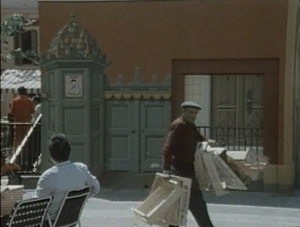
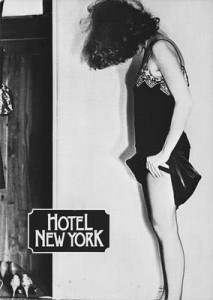
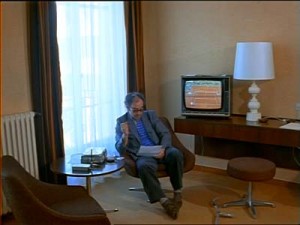
It’s a curious festival that can make young filmmakers like Henry Jaglom, Nicolas Roeg and John Sayles seem like commercial Hollywood directors. Devoted to the relatively unseeable and intractable independents across the globe whose work exists between the parentheses of an industry, Rotterdam has lasted for thirteen years, and under Hubert Bals’ inspired direction has this year added a market to amplify its already hefty fare. For an American who can hardly keep up with a Ruiz, Duras, Garrel or Jancsó without crossing the Atlantic, it was like stumbling into a forbidden forest of plenty, loaded with potential traps and unexpected rewards. Read more





